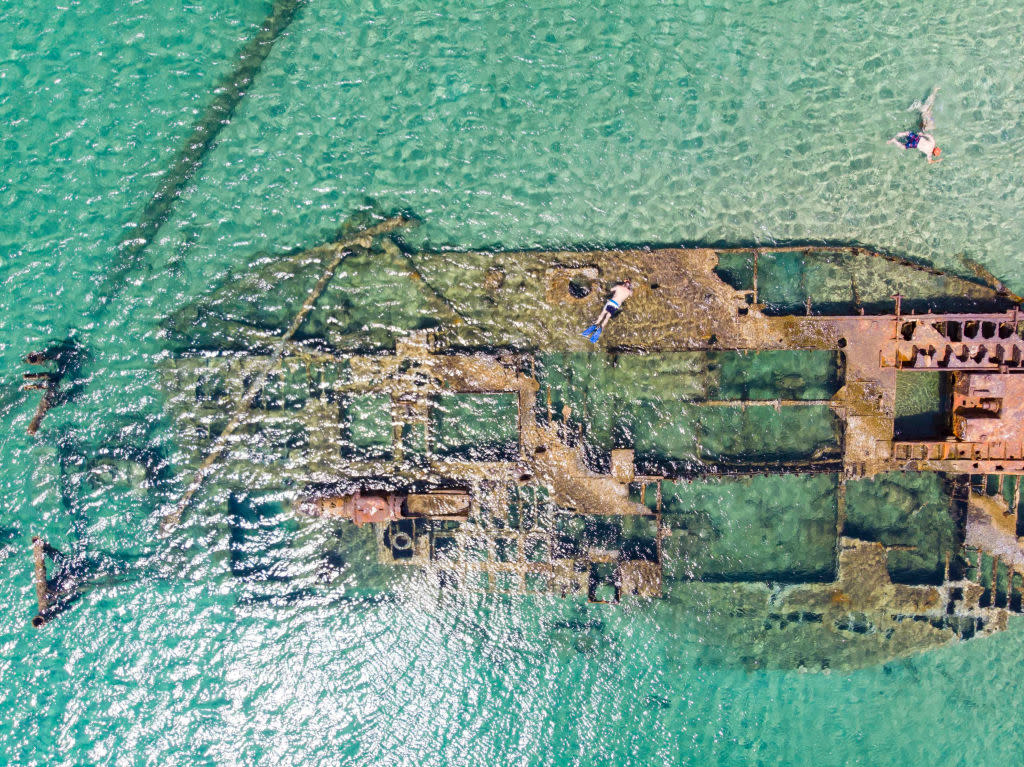Soak up the Blue Planet Effect and help save our oceans

By Niki Bruce
Living on an island as we do, Singaporeans feel fairly strongly about protecting the oceans. But did you know that your fashion and shopping habits could also protect them?
In 2018 it was calculated that there is about 270,000 tonnes of plastic litter is floating in the Earth’s oceans, and at least 80% of this plastic comes from land. On top of general plastic waste, whenever you do a load of washing, more than 9 million synthetic microfibers end up in the ocean.
Yes, all the synthetic fabrics we use for our clothes are shedding millions of tiny pieces of plastic into our seas, and although they might not be as visible as all those plastic bags floating around, this plastic is much more damaging. According to a recent International Union for Conservation of Nature (IUCN) report, particles from clothes make up to 35% of the plastic polluting our oceans.
READ MORE:
Opinion: Why you need to shop consciously, and where to do it in Singapore
Do you love plants more than people? Say hello to ‘plantfluencers’
Unfortunately the recent fashion trend for transparent plastic bags, clothes and even shoes, doesn’t seem very considerate considering the enormous amount of plastic waste that is already afloat in our oceans. Tsk, tsk, Chanel, Calvin Klein and Off-White who all recently sent plastic and PVC – which is even worse for the environment – down their runways.

How can Our Shopping and Fashion Choices Make a Difference?
Well you can be a bit more discerning about what type of clothes you buy for a start.
You can focus on buying clothes made only from natural materials, or you can even choose clothes that use fabric that is actually made from recycled ocean plastic, like G-Star’s RAW for the Oceans denim and other garments like tees and bomber jackets.
Luxury brands like Gucci, Stella McCartney and Adidas have joined up with organisations like Parley for the Oceans to source materials from companies like Aquafil, a textile manufacturer that turns ocean plastic into materials like Econyl, which is a sustainable fabric.
There are a number of cool brands using Econyl to produce some great fashion. If you are looking for swimwear, try one of these Australian labels – VDM The Label, Ambra Maddalena, Shapes in the Sand and Baythe Swim. For contemporary womenswear with style try Mara Hoffman, for underwear Triumph, for sportswear – especially yoga outfits – there are a number of brands to try, including Adidas, plus you can check Kowtow for great daily basics.

The Blue Planet Effect…
The idea of recycling ocean plastic to create clothes is part of a movement dubbed the ‘Blue Planet Effect’ after the BBC announced that it would ban single-use plastic items from 2020; the BBC had helped launch the global interest in ocean plastic pollution via its programme Blue Planet II.
While the broadcasting of the show created widespread interest, there have been a number of organisations dedicated to protecting the oceans around for years. Ocean Clean Wash is focused on the link between clothing, washing and sea pollution, 4Ocean works with fishing communities in emerging countries, and Greenpeace, of course, has a dedicated programme to end plastic in the oceans.
In Singapore the World Wide Fund for Nature (WWF) has a campaign to stop ocean plastic pollution – watch their video below – and even the developer Keppel Group has support the fight against ocean plastic.
However not enough appears to be being done about the problem in our island state. A number of groups have called out Singapore’s people, businesses and government organisations as needing to do more about the amount of plastic waste the country produces.
The World Wide Fund for Nature (WWF) Singapore, Asean CSR Network, Ocean Recovery Alliance, Gone Adventurin’, International Coastal Cleanup Singapore, Plastic Disclosure Project, Plastic-Lite Singapore, Tingkat Heroes and Team Small Change, all co-signed an article about why more needs to be done in Singapore about plastic waste.
What Can You Do?
Well, apart from shopping more sustainably in general, you can also join one of the above organisations, and buy less plastic as well. All it takes is a little bit of thought.


